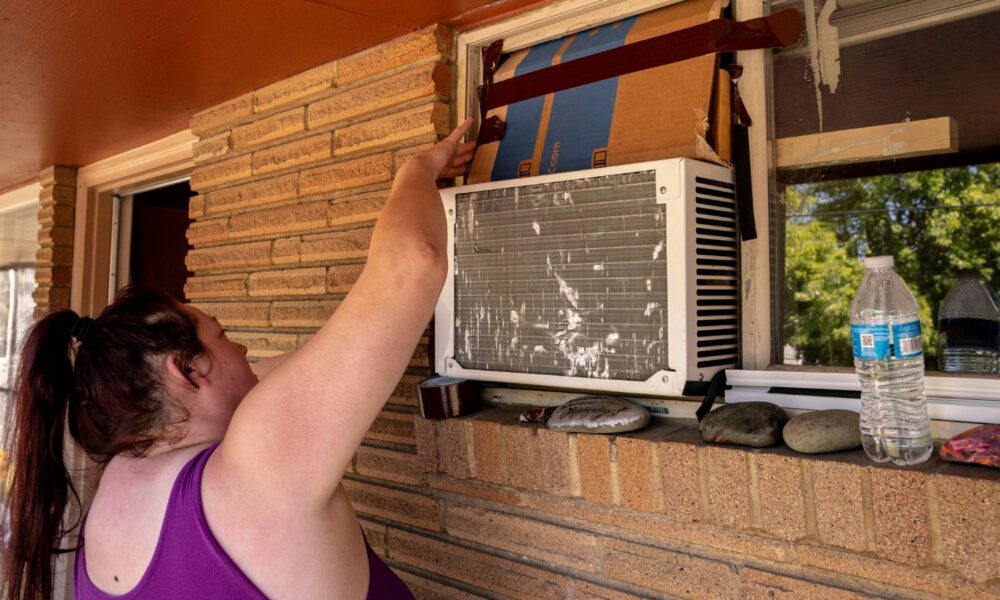Erika Spanger and Ashley Siefert-Nunes contributed to this post.
This week in Danger Season, many of us are trying to avoid the health impacts of an extended heat dome while watching the craven and shameless efforts of the Trump administration. They’re still trying to con us into thinking climate change isn’t a danger. How? By rolling back something literally called “the endangerment finding.”
Our top line: believe your own experience, not their gaslighting. And act accordingly.
The Endangerment Finding is critically endangered
This week’s outlook is a mash-up of our statement on the repeal of the Endangerment Finding (in italics below) and some commentary. Fact and corresponding fury, if you will.
Here’s what we said earlier this week:
“[On Tuesday July 29] the Environmental Protection Agency (EPA) [released a proposed rule] to undo the agency’s 2009 foundational scientific finding that global warming pollution endangers public health and the environment.”
As we reported, same day, same time, 136 million people in the eastern half of the country were sweltering under “major heat risk” and another 14 million under “extreme” risk. Some areas were coping with heat index conditions of 110°, 115° and 120°F. Heat-associated deaths, always badly undercounted, are mounting this summer and lives could very well have been lost to climate-exacerbated heat yesterday.
We sure wish the Trump administration could just “undo” the heat instead of trying to undo solutions.
It is well documented (by the EPA!) that heatwaves are becoming more frequent and lasting longer in the United States, and this week’s event is no exception to that trend. Our friends at Climate Central have developed a peer-reviewed, online tool that quantifies the role of climate change in the near-term heat forecast—and, as usual, finds it to be ubiquitous and overwhelming this week.
The fingerprints of climate change are all over this event as well as most types of climate extremes, from rapidly intensifying tropical storms to wildfires, droughts and flooding. But the Trump administration insists “nothing to see here.”


Department of Energy (DOE) Secretary Chris Wright joined EPA Administrator Zeldin [at the 7/29 news conference] and announced a DOE “climate science study” alongside remarks that were rife with climate denial talking points and disinformation.
In that news conference, Wright also shared that he “reached out to five scientists, I had many more on my list, but the first five all said yes [to writing this report].”
These five are of course the usual-suspect, notorious outliers in the scientific community, where there is 99.9% scientific consensus around climate change. Their report is an explicit attempt to establish climate denial as US climate policy.
Secretary Wright, we have many more scientists on our lists as well. None of ours are listed in the “Climate Denial Database.” All of yours are. A better place to start would have been with some of the 400 credible scientists whom the Trump administration summarily dismissed from their volunteer efforts to compile the Congressionally-mandated Sixth National Climate Assessment.
(Back of the envelope math: Wright’s odds of randomly dialing five climate-denying scientists are approximately one in, well, basically impossible.)
At the same time, the EPA has also announced a repeal of the strongest climate policy ever finalized—standards reducing global warming pollution from cars and trucks. The agency’s proposed reversal of the Endangerment Finding threatens to undermine other vital standards limiting heat-trapping emissions, including from power plants, oil and gas operations, and landfills, and follows the agency’s proposed repeal of the power plant carbon standards announced last month.
But wait, you might be thinking, haven’t we already invested in these transitions? Yes, we sure have. Won’t this make emissions rise? Yes it will. Why would they do this? Because they are enacting the fossil fuel industry’s agenda and using industry talking points to do so.
And now these same fossil fuel companies are trying to escape accountability for the damage they have caused Please tell Congress, no immunity for Big Oil. Please demand protections for people whose jobs expose them to grave risk during extreme heat. Please oppose the repeal of limits on emissions from power plants, too.
We’ll be back next week, when Congress is fully in recess. In the meantime, try to keep cool.

